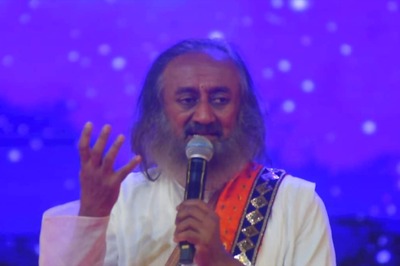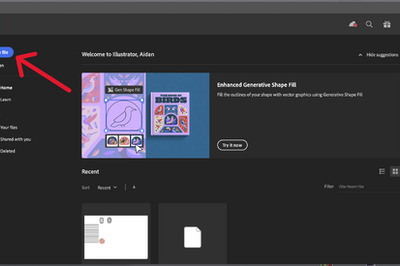
views
New Delhi: Lok Sabha Speaker Om Birla on Monday wrote to European Parliament President David Maria Sassoli over the resolutions moved against the Citizenship Amendment Act (CAA) in that legislature, saying it is inappropriate for one legislature to pass judgement on another and the practice can be misused by vested interests.
Birla's statement came on the same day that Vice President M Venkaiah Naidu said there is no scope for outside interference in India's internal matters.
The ruling BJP and the Congress also weighed in on the resolutions before the European Parliament, with the former questioning the objectivity of the members of the EU Parliament and the latter accusing the saffron party of internationalising the citizenship issue.
Kovind's letter to Sassoli comes after 600 lawmakers in the 751-member European Parliament moved six resolutions against the CAA, saying the enactment of the law marked a dangerous shift in India's citizenship regime.
"I understand that Joint Motion for Resolution has been introduced in the European Parliament on the Indian Citizenship (Amendment) Act, 2019. This act provides for easier citizenship to those who have been subjected to religious persecution in our immediate neighbourhood," Birla said in the letter.
"As members of Inter Parliamentary Union, we should respect sovereign processes of fellow legislatures, especially in democracies," he said. "It is inappropriate for one legislature to pass judgement on another, a practice that can surely be misused by vested interests."
"I would urge you to consider the proposed resolution in this light, confident that none of us want to set an unhealthy precedent," he said.
The new law, passed by Parliament last month, offers citizenship to non-Muslim persecuted religious minorities from Pakistan, Bangladesh and Afghanistan. The country has been witnessing massive protests against the CAA with opposition parties, civil rights groups and activists saying granting citizenship based on religion is against the foundational principles of the Constitution.
The Socialists and Democrats Group in the European Union submitted the resolution calling the CAA “discriminatory” and “dangerously divisive”, also calling upon the Indian government to engage with protesters and listen to their demands to repeal the legislation.
Passed by the 154-member S&D Groups of Members of the EU from 24 countries, the resolution is expected to be debated on January 29, with a vote likely on January 30.
The resolution denounces the fact that religion has become a criteria for the naturalisation of a person as an Indian citizen. It expresses concerns that the citizenship legislation along with the National Register of Citizens exercise, announced by the Centre to be conducted nationwide, will “render many Muslims citizens stateless”.
Indian authorities are urged to uphold the people’s right to peaceful protest, said the EU resolution, reminding India of its obligations to many internationally principles that prevent deprivation of citizenship on basis of race, color, descent, etc., as stated in the International Covenant on Civil and Political Rights.
The lawmakers who drafted the resolution also condemned the use of “excessive force in the crackdown” on the protests against the CAA and have urged authorities to stop the “criminalisation of protests.”
The controversial citizenship legislation has also been condemned in the US by the State Department and the Congress.
Besides, 57 member states of the Organisation of Islamic Cooperation (OIC) have declared they are "increasingly concerned" by the CAA due to its discrimination against Indian Muslims.
So far, there has been no reaction from the Ministry of External Affairs on the resolutions against the CAA in the European Parliament.
Official sources, however, maintained that it is an entirely internal matter and that the legislation was adopted through democratic means after a debate in both Houses of Parliament.
"Every society that fashions a pathway to naturalisation contemplates both a context and criteria. This is not discrimination," a government source said, explaining why India was opposed to the resolutions in the EU Parliament.
(With inputs from PTI)



















Comments
0 comment